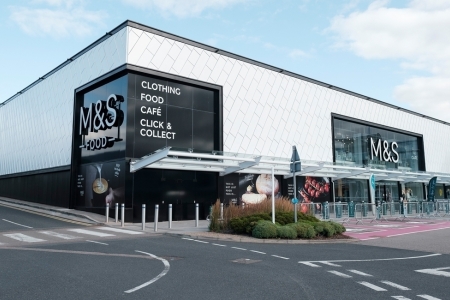The recent cyberattacks on Marks & Spencer, Co-op and Harrods sent shockwaves through the UK retail sector, and reminded us that every retail business can be put at considerable risk with little or no notice. But, no matter their size, there are steps retailers can take to prepare for the worst, says Simone Ward, content manager at Clarion Events, writing for online resource hub, Retail Revealed …
These weren’t just headline-grabbing hiccups – they disrupted payment systems, brought online orders to a halt, and even led to empty shelves and cancelled promotions. Easy to dismiss as something that only affects the big chains, right?
Think again. Cybercriminals are opportunists. They’re not only targeting retail giants, they’re increasingly going after smaller, independent businesses. Why? Because they suspect you don’t have the same defences in place. And too often, they’re right.
So, here’s the question every independent retailer should be asking – how protected am I, really? Let’s digest what’s happening, what’s at stake, and most importantly, what you can do about it.
When big brands fall, everyone feels it
If giants like M&S can be taken down, it’s a wake-up call for the rest of us. And while these brands have crisis teams and legal departments to mop up the mess, smaller businesses often don’t. Which makes the impact even more damaging.
Here’s what a cyberattack can look like for an independent retailer: no ability to take payments – including contactless; website outages – orders paused, customers turned away; stock chaos – disrupted deliveries and confused inventory; trust issues – when data is compromised, loyalty disappears; and financial risk – from fraud, fines, and loss of business. And that’s just the short-term fallout.
Good news – you’re not helpless
While the headlines might be alarming, the truth is this – many independent retailers can respond faster and more effectively than large corporations. You’re nimble. You can make decisions today that protect you tomorrow.
Here are 10 straightforward steps you can take:
Only keep what you need: Data is a double-edged sword. If you don’t have it, it can’t be stolen. Ditch old customer info you no longer use. Less is safer.
Pick a trustworthy ecommerce platform: Choose a provider that prioritises security. Look for regular updates, strong user support, and UK-compliant privacy features.
Run regular security checks: Use tools (or a local IT partner) to scan for vulnerabilities. Many affordable services are built specifically for small businesses.
Use payment verification tools: Address Verification Services (AVS) and CVV checks are simple but powerful. Most decent payment processors include these – make sure they’re switched on.
Ditch outdated software: If your website or POS system is running on old, unsupported software, update it or switch. Weak software is an open door for attackers.
Strengthen your password policy: Encourage the use of password managers and multi-factor authentication. Educate your team—it’s not just an IT issue, it’s a business-critical habit.
Encrypt everything: From website traffic to customer emails, SSL certificates are now easy to implement and often free. Make sure your checkout pages are secure.
Get your team on board: Make cybersecurity part of your culture. Train staff, run refreshers, and use real-world stories to make it hit home.
Back it up – and plan for the worst: Daily backups and recovery plans might sound like overkill until something goes wrong. Then, they’re a lifeline.
Show customers you care: Display security badges, share your data policies, and be transparent. Trust is fragile – handle it with care.
Where to get support
You’re not on your own. These UK-specific resources are a great place to start: the National Cyber Security Centre’s Small Business Guide – practical, no-nonsense advice tailored to your size and setup; Action Fraud – report a cybercrime, get support, and learn how to protect yourself next time; local business networks and chambers of commerce – these often provide cybersecurity training, peer support, and alerts on emerging threats.
Prevention is power
If there’s one message to take from recent events, it’s this – don’t wait. Cybersecurity isn’t about fear, it’s about preparation.
Independent retailers like you are the lifeblood of the UK high street and digital marketplace. And in this increasingly risky digital landscape, protecting your business is part of protecting your future.













